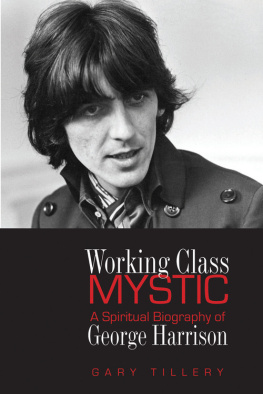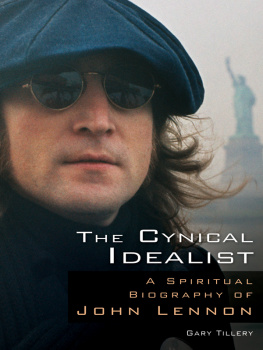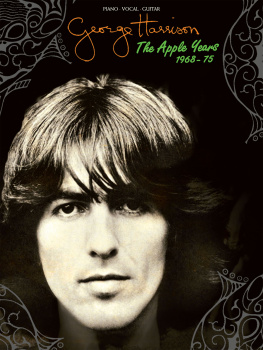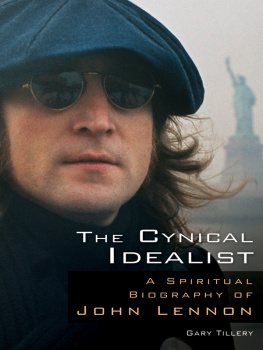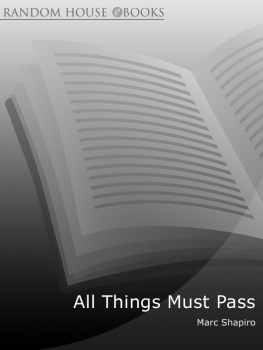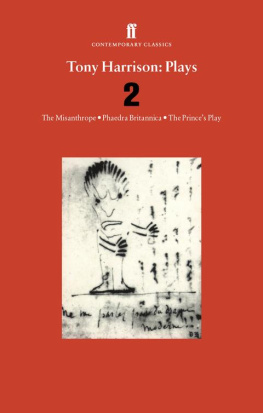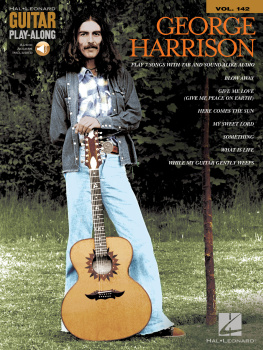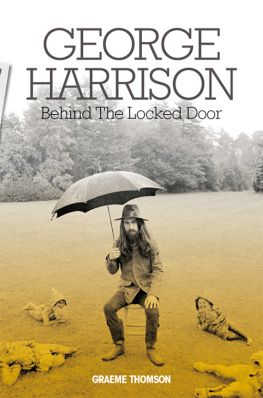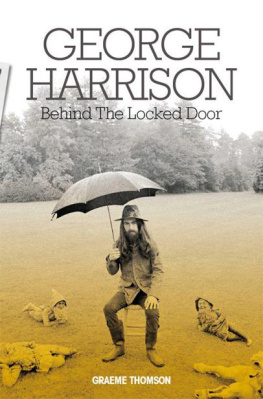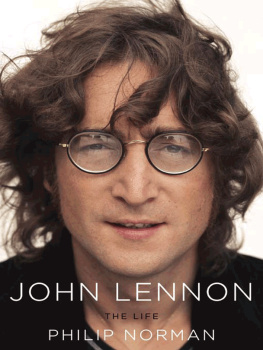Working Class
MYSTIC
A Spiritual Biography of
George Harrison
GARY TILLERY

Learn more about Gary Tillery and his work at www.garytillery.com
Find more books like this at www.questbooks.net
Copyright 2011 by G. G. Tillery, LLC
First Quest Edition 2011
Quest Books
Theosophical Publishing House
P. O. Box 270
Wheaton, IL 60187-0270
Without limiting the rights under copyright reserved above, no part of this publication may be reproduced, stored in or introduced into a retrieval system, or transmitted, in any form, or by any means (electronic, mechanical, photocopying, recording, or otherwise), without the prior written permission of the publisher of this book.
The scanning, uploading, and distribution of this book via the Internet or via any other means without the permission of the publisher is illegal and punishable by law. Please purchase only authorized electronic editions, and do not participate in or encourage electronic piracy of copyrighted materials.
While the author has made every effort to provide accurate telephone numbers and Internet addresses at the time of publication, neither the publisher nor the author assumes any responsibility for errors or for changes that occur after publication. Further, the publisher does not have any control over and does not assume any responsibility for author or third-party websites or their content.
Cover image courtesy Bill Zygmant, www.billzygmant.co.uk
Cover design by Drew Stevens
Library of Congress Cataloging-in-Publication Data
Tillery, Gary.
Working class mystic: a spiritual biography of George Harrison / Gary Tillery.1st Quest ed.
p. cm.
Includes bibliographical references.
ISBN 978-0-8356-0900-5
1. Harrison, George, 19432001. 2. Rock musiciansEnglandBiography. 3. Harrison, George, 19432001Religion. I. Title.
ML420.H167T55 2011
782.42166092dc22
[B] 2011015554
ISBN for electronic edition, e-pub format: 978-0-8356-2059-8
5 4 3 * 12 13 14 15
In memory of
my father,
B. M. Tillery
Author's Note
S o much is lost when lyrics integrated into a background of carefully arranged and emotionally performed music are taken out of their proper context. In this book, in order to illustrate George Harrison's spiritual discoveries and development, I call attention to a range of key phrases from his songs. But I realize that they may seem fragmentary and uninspired when rendered on the page in stark black and white. The key songs addressed in the text are listed at the end of each major section of this book and you are encouraged to listen to them.
Acknowledgments
A work like this may appear to be purely the creation of an individual scouring the sources and then pounding away doggedly at the keyboard, but it would not be nearly as ready for the public without the benefit of scrutiny by objective eyes. I would like to express my gratitude to Seymour Shlaes for combing the first draft for errors and to Will Marsh for taking a jeweler's eye to text I considered ready for print. I would also be remiss if I didn't thank Quest Books, specifically Sharron Dorr, Nancy Grace, and Richard Smoley, for their input in making Working Class Mystic a worthy tribute to the Quiet Beatle.
Introduction
One by one we get awakened by the sound of Krishna's flute. His flute works in many ways.
George Harrison
I n the spring of 1965, when he accepted a long-standing dinner invitation, George Harrison had no reason to suspect that the trajectory of his religious life was about to change forever.
The son of a Roman Catholic mother and a lapsed Anglican father, Harrison had spent a decade in a long retreat from the spiritual teachings of his youth. Upon reaching an age when he felt comfortable emulating his father's avoidance of Sunday services, he too began to skip the bout with boredom. Impressive but outdated liturgies held no appeal for him. Like his sister and two older brothers before him, he drifted into an irreligious frame of mind, focusing instead on the usual preoccupations of teenagers as well as the band he and his friends Paul McCartney and John Lennon had formed. When, ultimately, the Beatles broke through to stratospheric success and stellar fame, he relished all the material world had to offer. Spiritual concerns didn't enter his mind.
Then, while the Beatles were filming Help! in London, Harrison and his girlfriend persuaded John Lennon and his wife to join them in accepting a dinner invitation from the Beatles' dentist. After dinner, without their knowledge, their host gave them all coffee laced with LSD. Harrison later described what happened: My brain and my consciousness and my awareness were pushed so far out that the only way I could begin to describe it is like an astronaut on the moon, or in his spaceship, looking back at the Earth. I was looking back to the Earth from my awareness.
What he encountered with his awareness pushed so far out came as a revelation. In the enrapturing clarity of an LSD experience he unexpectedly found God.
The full recognition of that discovery did not come to him until months later. That night in April 1965, he understood only that he was filled with a strange and powerful emotion. He recalled, I felt in love, not with anything or anybody in particular, but with everything. Everything was perfect, in a perfect light, and I had an overwhelming desire to go around the club telling everybody how much I loved thempeople I had never seen before.
When, in time, he was able to look back objectively at the experience, he realized that in those amazing hours he had embracedand been embraced bythe divine. His life would never be the same. That first step along a new path led to others. He discovered an affinity with faraway India. He befriended Ravi Shankar and studied the sitar. He took up yoga and began to chant. He studied meditation under the Maharishi Mahesh Yogi and supported the worldwide mission of Swami Prabhupada. He became a devotee of Hinduism, visiting its temples and sacred places and studying the writings of its holy men. He came to worship Krishna.
He worked hard to subdue his own ego and devoted great effort to understanding the truth hidden behind this waking dream he believed we inhabit. Once he learned to view the world through the eyes of a mystic, he vacillated between detachment from and attachment to it. He preferred to remain out of the spotlight, but his empathy for suffering people on the other side of the planet led him to spearhead the first rock-and-roll super-event for charity. He felt content with his own relationship with the deity, yet he had the urge to write songs intended to awaken the sleeping masses. Though he spent his life as one of the world's most famous men, he was always delighted to slip on overalls and work boots and join in manual labor around his properties.
When he passed out of the material world, succumbing to cancer at age fifty-eight, those who surrounded him in his final hours, besides his family, were ones who shared his spiritual beliefsmembers of the International Society of Krishna Consciousness and his lifelong friend Ravi Shankar.

